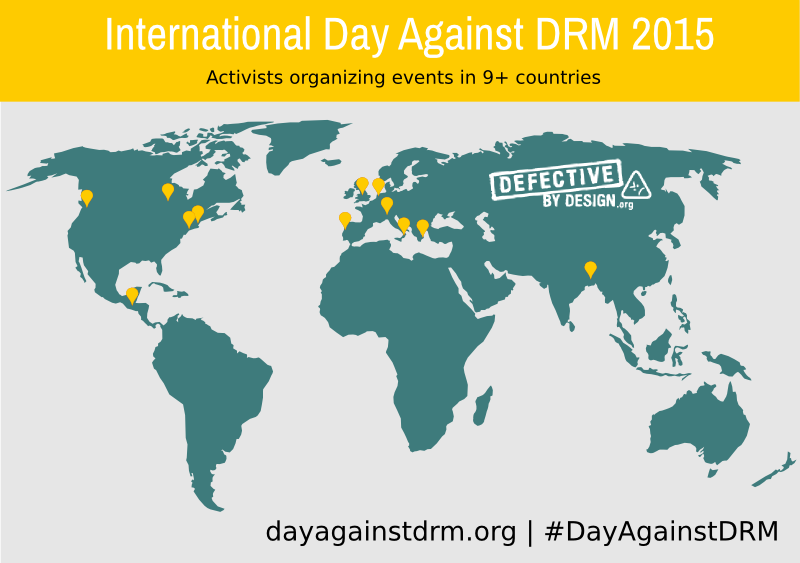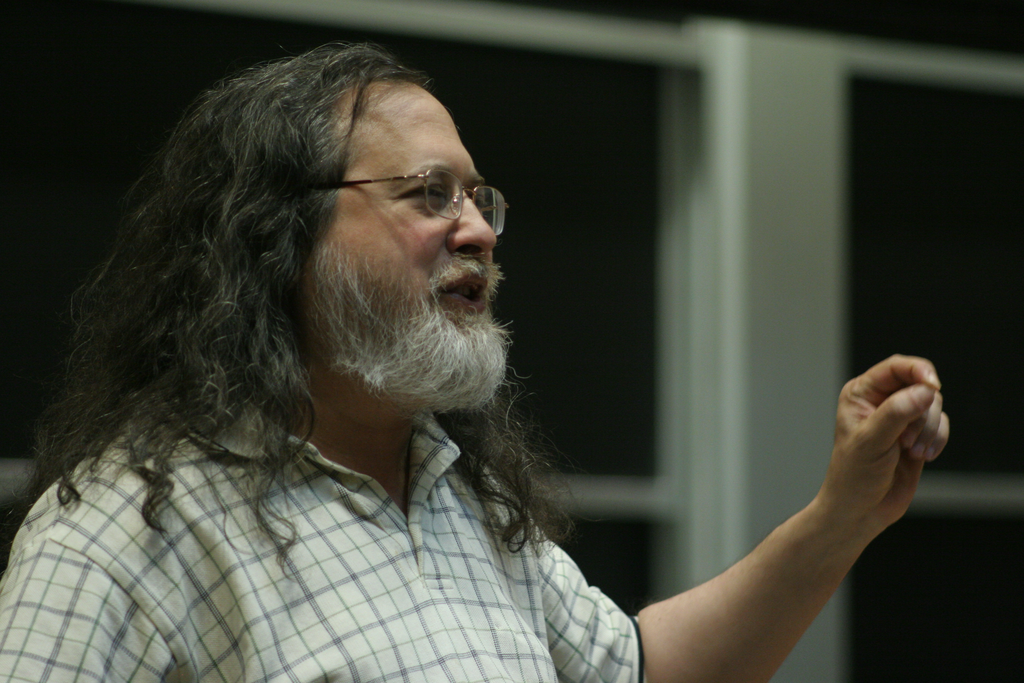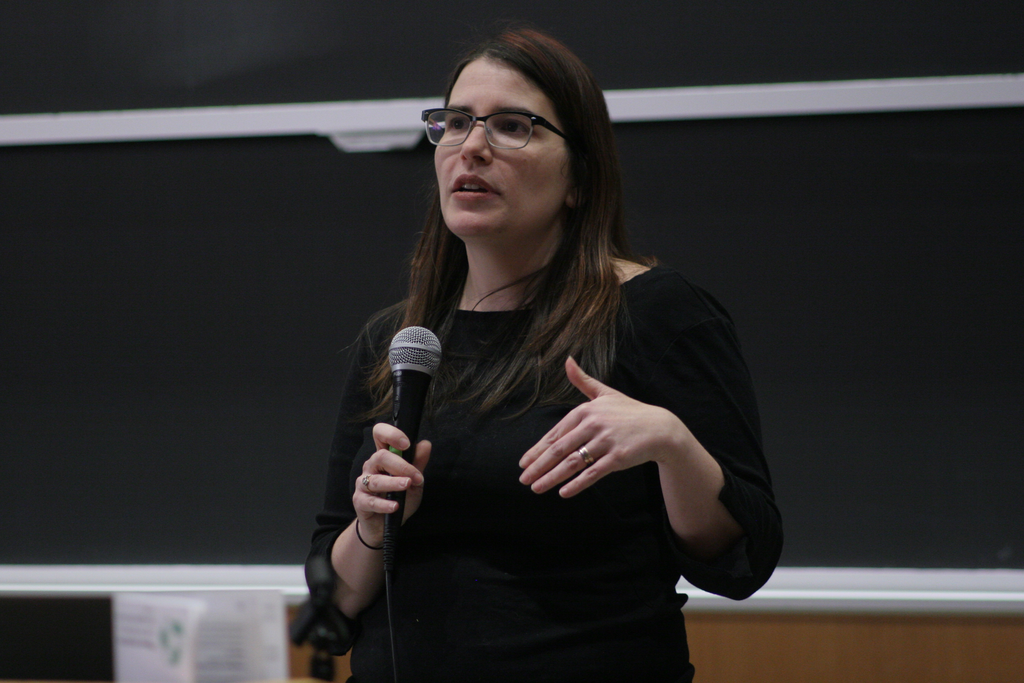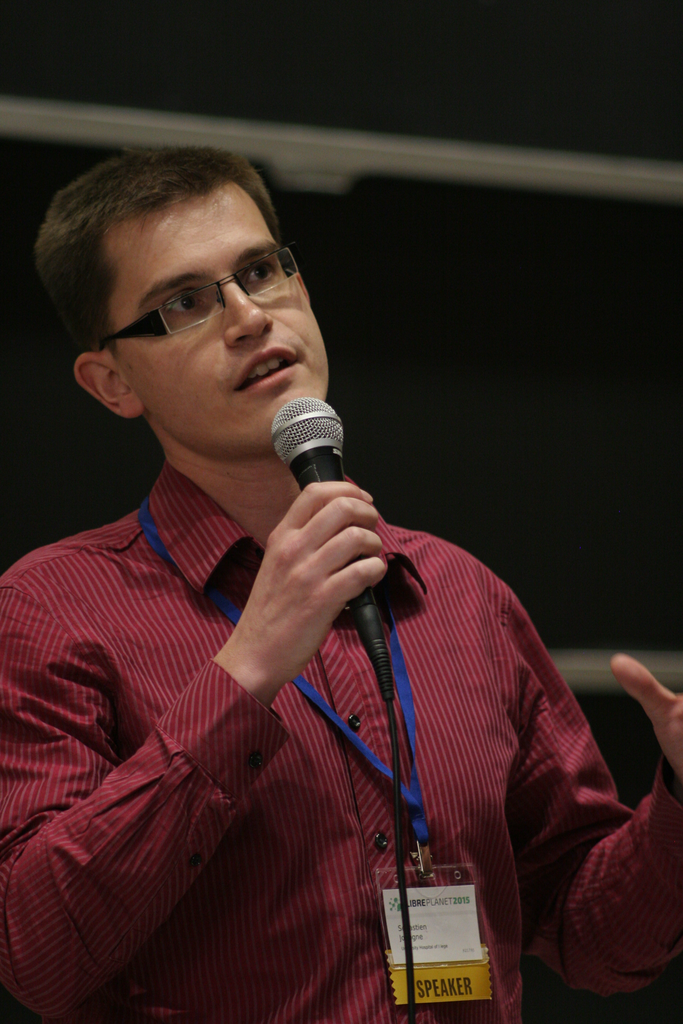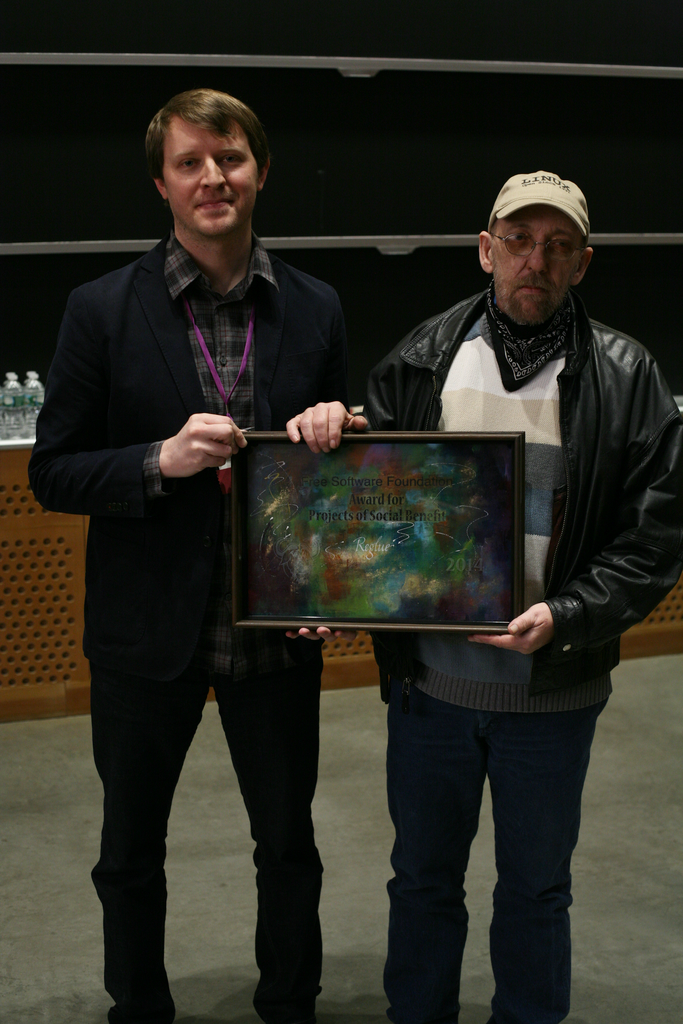Free Software Foundation announces deputy director search
mercredi 13 mai 2015 à 21:55This new position would work closely in support of the executive director to coordinate and amplify the work of an expanding, 12-person staff; represent the FSF to conference, supporter, and donor audiences internationally; and play a key role in improving the FSF's overall effectiveness by driving initiative prioritization, fundraising, resource allocation, hiring, and internal process development.
Now is an especially exciting time to join the FSF team, since this year is our 30th anniversary. We are taking the opportunity to both reflect on the past and plan ahead for the next 30 years.
In addition to being a talented general manager and project coordinator, the right candidate will bring significant expertise to at least one of the FSF's major work areas -- technology infrastructure and software development, licensing and compliance, public advocacy and engagement, fundraising, or operations.
This role is for someone who:
- is a dedicated free software user;
- cares deeply about the impact of control over technology on the exercise of individual freedoms;
- stays highly organized, even during high-stress situations,
- inspires and motivates others;
- is a reliably rational, diplomatic, and productive voice in discussions, both online and offline;
- loves puzzles and problem-solving; and
- enjoys the challenges of working in the public eye, including fielding and responding to criticisms.
Because of financial control duties, the position must be worked from the FSF's headquarters in Boston, Massachusetts. Relocation assistance is available. Candidates currently located outside the US may apply; we have sponsored visas in the past.
Salary would be commensurate with experience. Benefits include:
- full family health coverage through Blue Cross/Blue Shield's HMO Blue program,
- subsidized dental plan,
- four weeks of paid vacation annually,
- seventeen paid holidays annually,
- public transit commuting cost reimbursement,
- 403(b) program through TIAA-CREF,
- a shiny silver Deputy star,
- yearly cost-of-living pay increases, and
- potential for an annual performance bonus.
Applications must be submitted via email to hiring@fsf.org. The email must contain the subject line "Deputy Director". A complete application should include:
- resume or CV,
- cover letter,
- writing sample (1000 words or less), and
- links to published work online, such as articles, code contributions, or conference presentation videos.
All materials must be in a free format. Email submissions that do not follow these instructions will probably be overlooked. No phone calls, please.
Applications will be evaluated on a rolling basis.
The FSF is an equal opportunity employer and will not discriminate against any employee or application for employment on the basis of race, color, marital status, religion, age, sex, sexual orientation, national origin, handicap, or any other legally protected status recognized by federal, state, or local law. We value diversity in our workplace.
About the Free Software Foundation
The Free Software Foundation, founded in 1985, is dedicated to promoting computer users' right to use, study, copy, modify, and redistribute computer programs. The FSF promotes the development and use of free (as in freedom) software -- particularly the GNU operating system and its GNU/Linux variants -- and free documentation for free software. The FSF also helps to spread awareness of the ethical and political issues of freedom in the use of software, and its Web sites, located at fsf.org and gnu.org, are an important source of information about GNU/Linux. Donations to support the FSF's work can be made at https://donate.fsf.org. Its headquarters are in Boston, MA, USA.
More information about the FSF, as well as important information for journalists and publishers, is at https://www.fsf.org/press.
